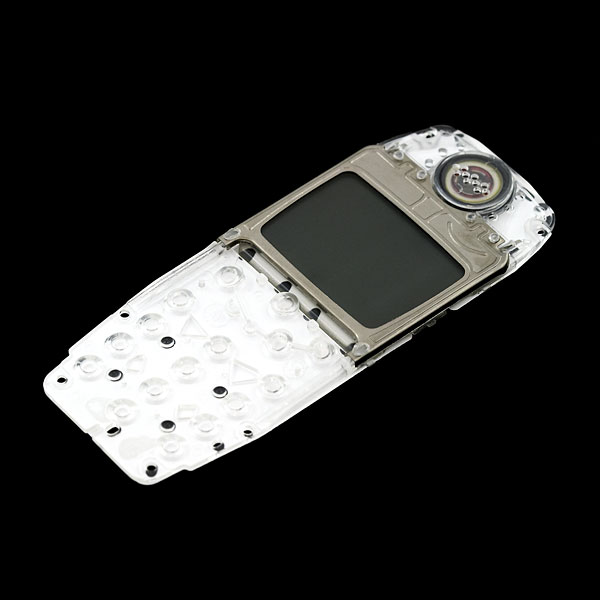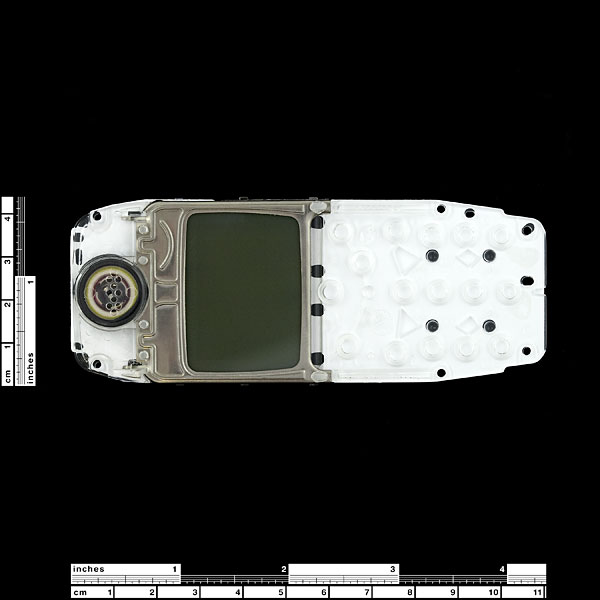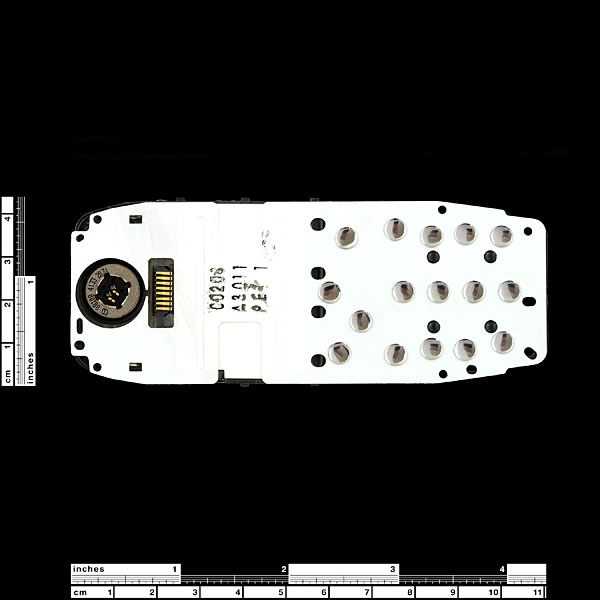Graphic LCD 84x48 - Nokia 3310
Replacement:LCD-09924. The new version doesn't have the housing and is just the bare LCD screen.
This is a small monochrome LCD 84x48 pixel display that was used in the immensely popular Nokia 3310 phone. This is a very low power display (less than 1mA) but has no backlight. Great for low power remote node applications.
Search google for Nokia 3310 LCD and you will find lots of documents and resources including pin outs.
This product includes a small electret speaker that can be driven from GPIO pins on a microcontroller.
Comments
Looking for answers to technical questions?
We welcome your comments and suggestions below. However, if you are looking for solutions to technical questions please see our Technical Assistance page.
Customer Reviews
No reviews yet.




hi guys pich is 1.15 mil and totoal 8 pins
but if sombody like to see a good tutorial about how to interface this lcd to a microcontroller plese visit this link
http://www.circuitvalley.com/2011/08/nokia-3315-lcd-interfacing-with.html
I wish sparkfun had made a board for this.
We do too actually, but it's a difficult screen to use with the strange connector.
the connector on mine is also not glued. I thought i'd just solder right to the pins, which was easy, but it doesn't work without physical pressure on the pins. I'll probably just glue a piece of perfboard over it or something, as it looks funny with a clothespin on it.
I found a nice little program that will let you draw a picture and then it will generate a byte table for you. You can find it at http://www.amontec.com/lcd_nokia_3310.shtml
Does anyone know if this lcd or the 3410 version can handle 5 volts?
Jaapio
You could plug 5v into it but I doubt it would last long. Put a 2v LED in series with the screen and you could power it off a 5v supply; that also gives you a status indicator:)
Be warned: do not try to remove the display from the cellphone assembly. The connector of the LCD (which is a "Chip On Glass") is just faint traces on the back of the glass. The metal connectors are part of the cellphone assembly. You can (carefully) cut the assembly as long as you keep the metal plate at the front connected to the rest of the plastic.
SparkFun: how about a custom PCB where we can take the LCD out of that plastic cellphone assembly and have a regular, breadboard-friendly 0.100" header?
Just to be more precise about what I'm saying: the three LCDs I received do NOT have their connector glued to the glass.
Yep, the Nokia 3310 has the 'connector' as one of those rubberized connections that just stay put by friction.
The small size and low cost of this display makes it perfect for portable applications.
If you use a 5x5 font with 1 pixel of spacing between each character, this equals to a 14x8 display for only 4.95$USD. A character-based LCD display would cost at least 10-15$ for 16x2 characters, and would be much bigger.
If you prefer to use a 5x7 font, again with 1 pixel spacing between characters, you get a 14x6 display, which is still three times as many rows as a 16x2.
And you also have the bonus of being able to do graphics along with your text.
Sparkfun should make a small board for these displays, unless it ends up doubling the cost of each LCD.
Heck, even if it did double the cost to $10, that's still quite thrifty for a graphing LCD w/ breakout. So, how about it SFE? Anything in the pipeline?
I bought one of these from SparkFun and have got it working with an ATmega168. Oddly, I can't adjust the contrast (changing the Vop register has no effect). Has anyone seen this behavior on these displays from SparkFun?
The contrast doesn't look bad, I would just like to be able to change it if needed.
is there anyway of using this with an arduino? if yes can u please send me the code? nadav.aviv.ami [at] gmail [dot] com
Amazing LCD. I have used this with an 8051 and currently playing with it on an Arduino.
Don't worry about the breakout, just solder wires directly, and then hot glue the connections.
I soldered directly to the pins on the back of the LCD. I have a good demo of this LCD for graphics on my "Audio Visualization with Nokia 3310 LCD and FFT" project.
http://tinkerish.com/blog/?p=39
Below is a link to a simple breakout board for this LCD. It simply brings the pins out to .1 spaced throughholes for breakaway headers. I broke the pints into one 4 pin SPI header and one 3 PIN header for power ground and the extra needed signal. I figured that would work on any generic board like an Arduino and accommodate any boards that already have a SPI and servo port (like the ones I normally use). Someday maybe SparkFun will be able to make such a board for us to buy. Until then, maybe we can get some of these made.
http://fuzzymonkey.net/software/avrmicrocontroller/nokia-3310-breakout-v1.0.zip
Note, the hardwork was done by pay.c at the AvrFreaks.net forum. He shared his Eagle part in this post. That post has a PDF of a single sided board for etching which is probably the way to go for anyone into that.
Also, I have not ordered the board yet so consider it untested.
What is the pitch of the pins on this LCD?
I believe the actual connections pads have a 0.5mm pitch.